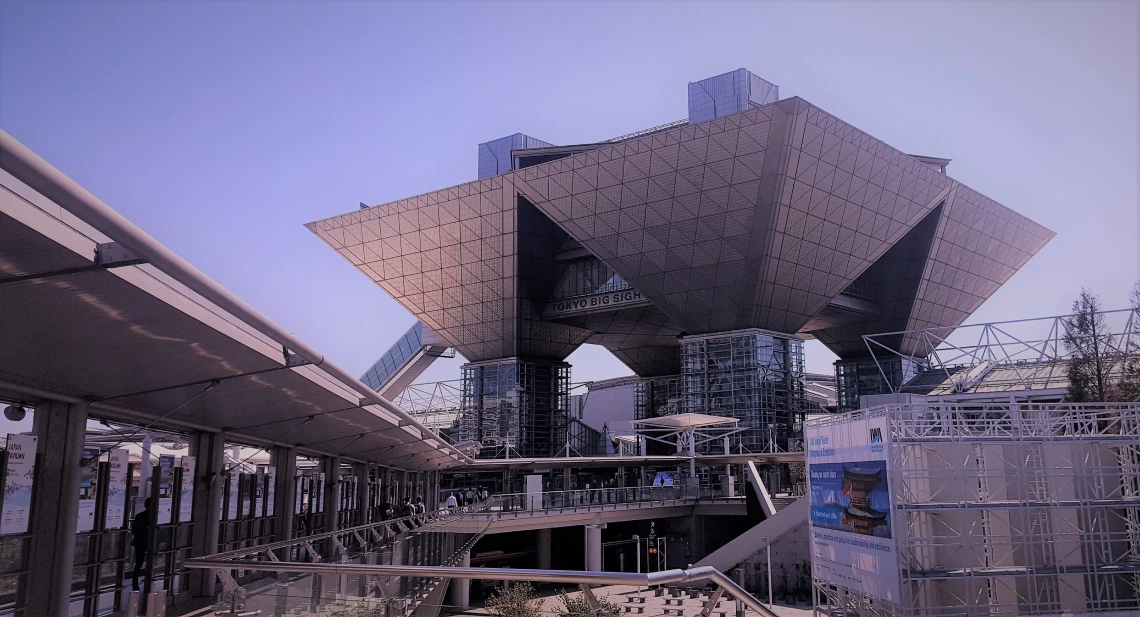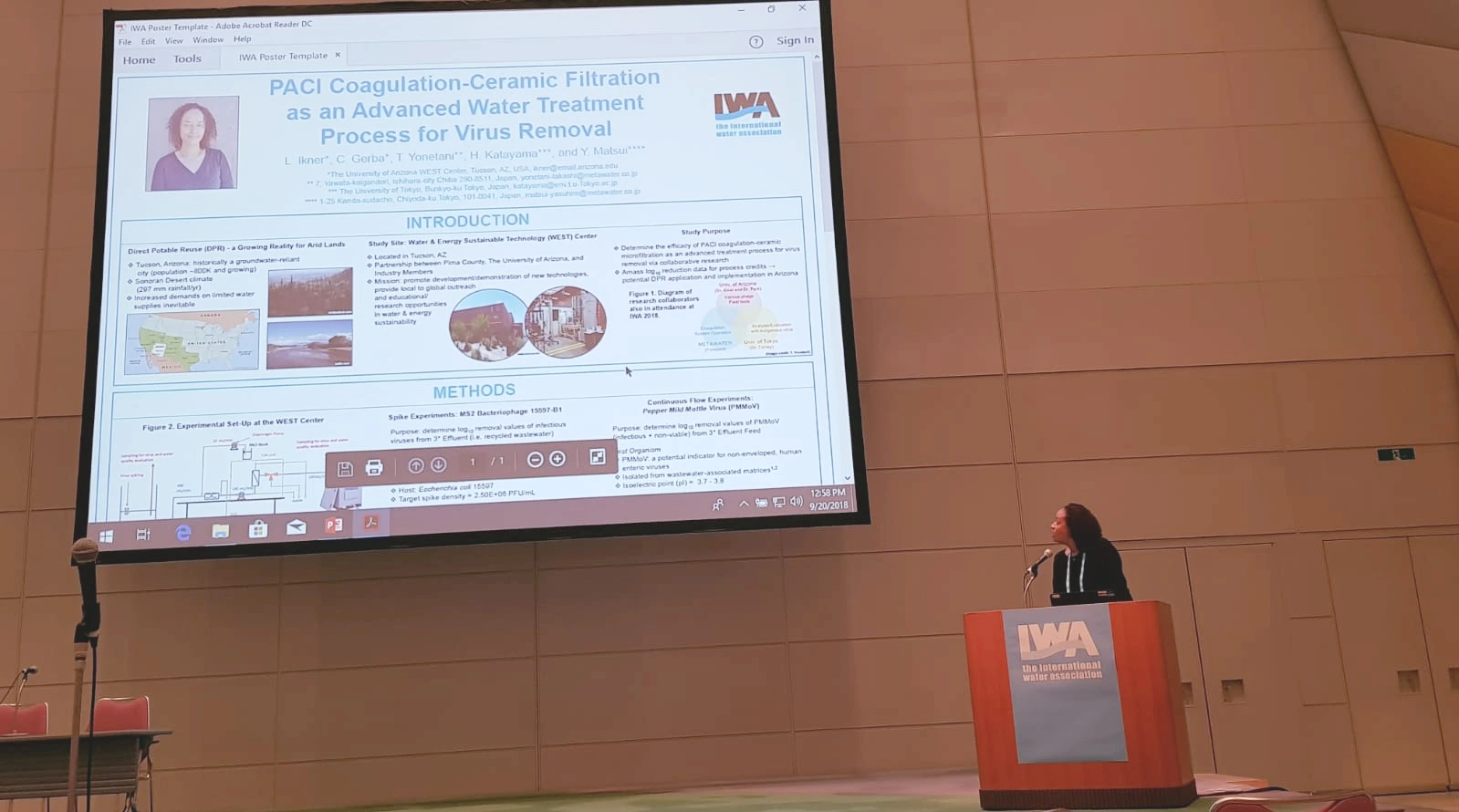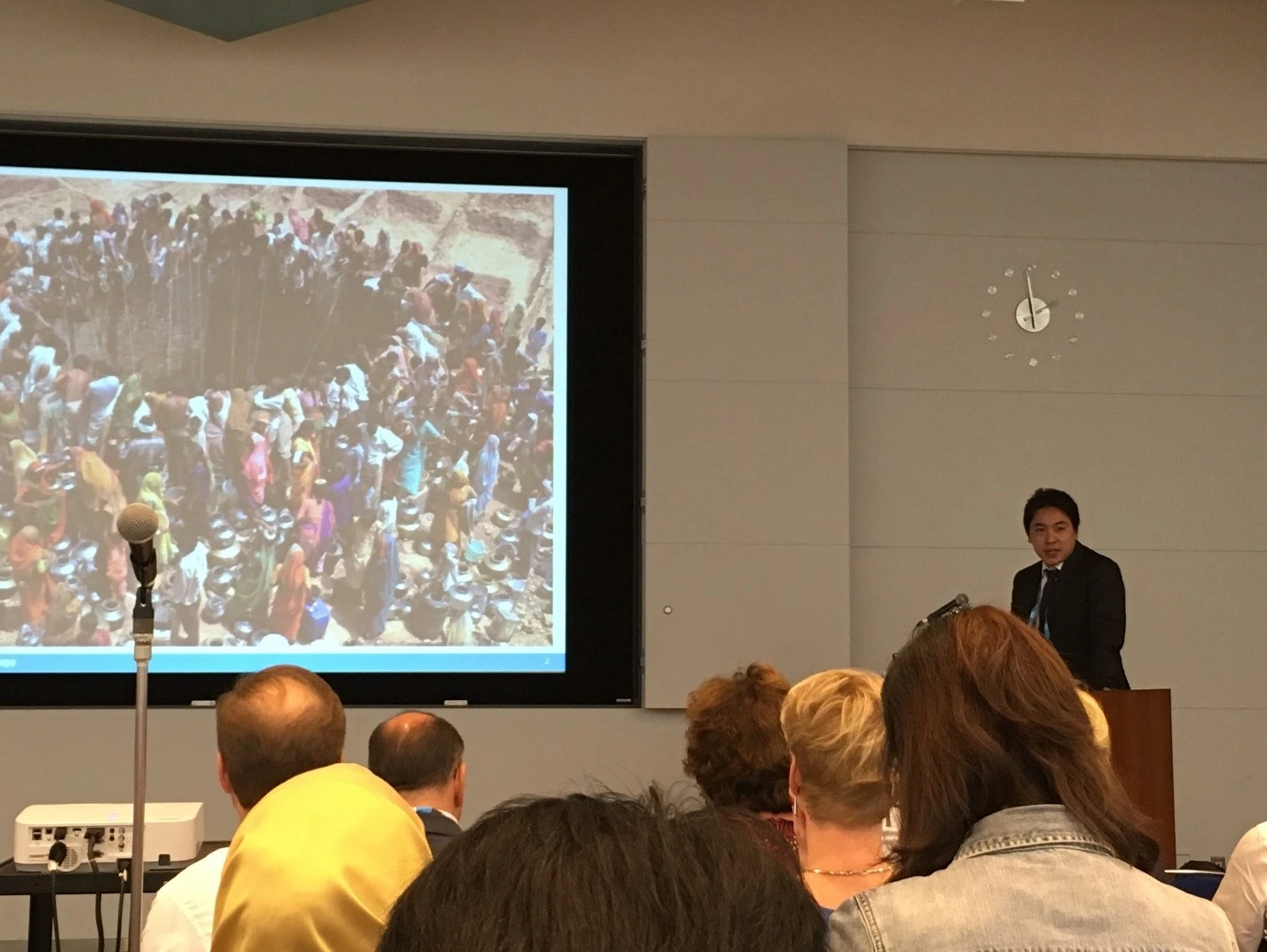WEST research features at IWA World Water Congress in Tokyo

Dr. Minkyu Park and Dr. Luisa Ikner, UA WEST faculty, traveled to Tokyo, Japan in September 2018 to participate in the International Water Association (IWA) World Water Congress & Exhibition.
As described by IWA:
- The IWA World Water Congress & Exhibition brings over 6,000 water, environment and related professionals from more than 100 countries and offers new insights into how pioneering science, technological innovation and leading practices shape the major transformation in water management that is underway. Attracting water professionals from over one hundred countries, the IWA World Water Congress & Exhibition provides a unique opportunity to learn about the latest trends in leading practices, innovative technologies and pioneering science.
As presenters to this group of water professionals, Dr. Park shared recent research in a slide presentation session, while Dr. Ikner presented a ‘poster pitch’ to conference participants. Their work, done in collaboration with WEST-member METAWATER Co., Ltd, focused on the use of polyaluminium chloride (PACI) coagulation-ceramic filtration for virus removal and fouling reduction in water reuse. Pulling together additional team members both local and international, and capitalizing on WEST Center’s unique facility resources, Dr. Park led filtration research, while Dr. Ikner directed the viral analysis component of the WEST Center project.
With wastewater effluent being the primary source for potable water reuse, the vast number of pathogens contained in effluent is a pressing concern. In the presented study, Dr. Park and Dr. Ikner conducted various phage field tests to remove viruses with METAWATER’s ceramic membrane with pre-coagulation of polyaluminium chloride (commercially called the META-Hybrid CERA system). Water samples were then analyzed to determine the technology’s efficacy and potential Direct Potable Reuse (DPR) application.
Results indicated that:
- MS2 bacteriophage, a virus surrogate, was removed at greater than seven log reduction value (LRV) by ceramic membrane filtration with pre-coagulation (META-hybrid CERA system). This finding is hopeful for its applicability in water reuse for disinfection.
- Pepper mild mottle virus (PMMoV), an indigenous virus, is widely present in wastewater effluent and can be used as an indicator virus to monitor virus reduction by META-Hybrid CERA system. This finding is promising as the monitoring of PMMoV may provide an alternative to the conventional virus surrogate spiking method (also called microbial challenge test) which is high-cost and not viable in full-scale treatment processes.
- Coagulation-microfiltration is a promising advanced water treatment technology for consistent virus removal from 3° Effluent wastewater that may be employed for DPR purposes (water reuse) in the near future.
- High-basicity PACI (PAX-XL 19) has greater removal efficacy as demonstrated by MS2 and PMMoV data.
- More research is needed to determine sources of variability for PMMoV in 3° Effluent, including inherent seasonality effects and sample processing/concentration methods to enhance equivalent volumes.
For more information on this WEST research project, please contact Dr. Minkyu Park or Dr. Luisa Ikner. The poster presented at the IWA World Water Congress & Exhibition 2018 can also be viewed here.



